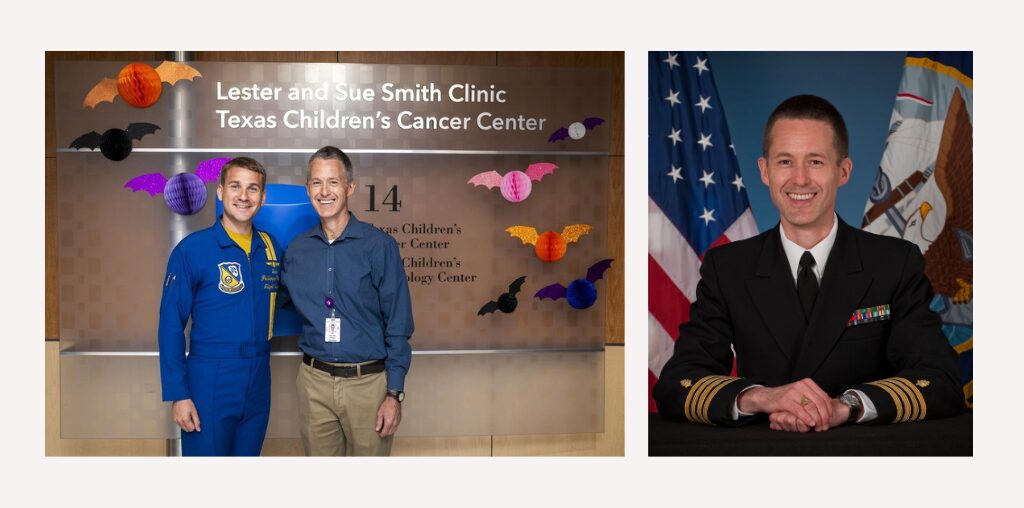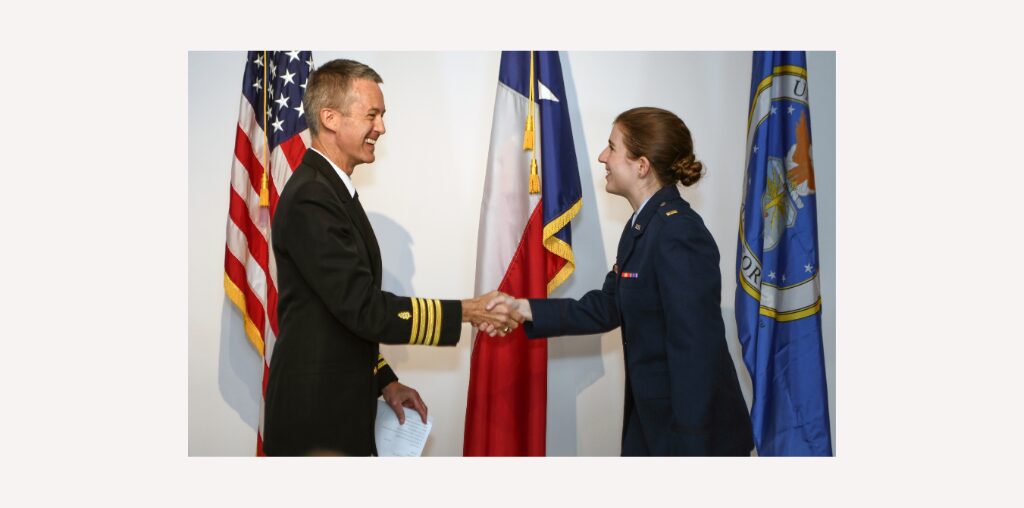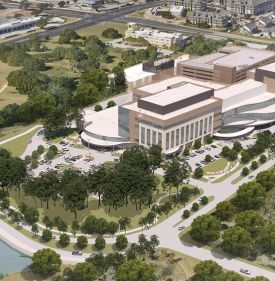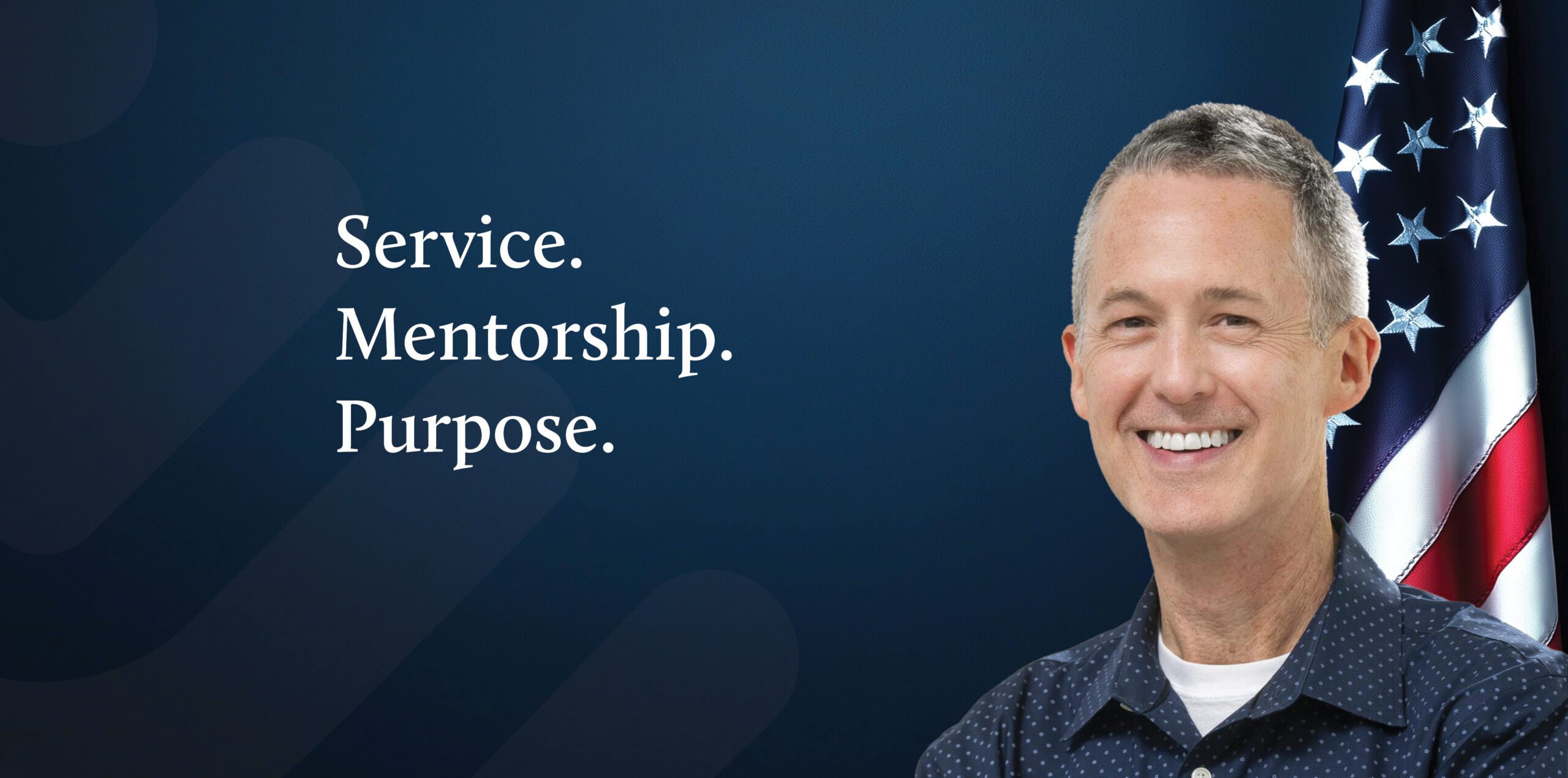How Military Service Shapes Dr. Timothy Porea’s Mentorship and Purpose
☆ U.S. Navy veteran, Dr. Timothy Porea carries on his career of service by helping children facing cancer and blood disorders reclaim their health and their hope. As a pediatric hematologist-oncologist at Texas Children’s Hospital and professor at Baylor College of Medicine (BCM), he is guided by the same principles that shaped his military career: discipline, teamwork and compassion, as he leads and provides mentorship for the next generation of physicians.
Commitment to Service
Dr. Porea began his medical career in Houston at BCM, where he attended medical school on a Navy scholarship. After completing his pediatric residency in San Diego, he spent two years caring for military children on Okinawa, Japan, before returning to Texas Children’s for a Navy-funded fellowship in pediatric hematology-oncology.
He went on to serve as a pediatric hematologist-oncologist for military families in Virginia for 14 years, retiring at the rank of Captain after 22 years of service. In 2014, he returned to Texas Children’s and BCM for the third time, bringing with him a lifetime of lessons about leadership, adaptability and service. Today, in addition to his clinical work, he serves as a mentor for military medical students from all four Houston-area medical schools.

Leadership Grounded in Teamwork
Dr. Porea sees clear parallels between military service and medicine, particularly in their shared emphasis on teamwork.
“For any given mission, if the entire team is not on board with the goals and how to get there, you risk failure,” he says. “Leaders must not lead from a pedestal but rather encourage and embrace feedback from the entire team in order to succeed.”
Throughout his career, he has relied on the lessons of Navy life, especially the need to adapt quickly when the unexpected happens.
“A large part of military training involves being flexible,” he says. “Situations will always arise that may not have a precedent. We all need to be prepared to respond to a situation in which there may not be a protocol or standard operating procedure to follow.”
He still remembers a mentor’s advice from his residency days: “Be fluid; flexible is too rigid.” That principle continues to guide his approach to patient care, teamwork, and problem-solving in pediatric oncology.
Physician Mentorship Rooted in Professionalism and Empathy
During his final decade in the Navy, Dr. Porea led the military’s pediatric residency program in Virginia. This role, in particular, gave him a deep appreciation for the challenges of graduate medical education.
“From the beginning, I try to help trainees build good habits like punctuality and showing respect to nurses and staff as a way to set them up for success in the future,” he said.
He strives to mentor with humility and empathy.
“It’s easy for senior physicians to lose sight of what they went through early in their careers,” he reflects. “I hope that by acknowledging the challenges of being a resident or fellow, and helping with clinical work that might be considered ‘trainee’ work, I might be a good role model for them in their futures.”

Photo courtesy Baylor College of Medicine.
Encouraging Veterans and Transitioning Clinicians
For health care professionals moving from military to civilian practice, Dr. Porea offers perspectives grounded in both realism and optimism.
“When in the military, we often think the grass is greener on the outside and that we won’t face any of the frustrations we faced in the service,” he observes. “The reality is any large organization will have things that you think can be done better. We should all focus on the many positive aspects of our careers while working within systems to change the things that frustrate us.”
He also encourages clinicians to advocate for their interests and ambitions.
“If there is something you want to do in your position, don’t hesitate to ask for it,” he says. “If you don’t ask then the answer is automatically no, whereas if you ask there’s a good chance you’ll receive a positive reply.”
Dr. Porea believes that civilian institutions, including Texas Children’s and BCM, highly value military experience. “I tell all active-duty members I meet that they can expect to receive a very positive reception when they enter the civilian world.”
Honoring Service and Extending It Through Care
Dr. Porea comes from a family with deep military roots: a father who also served in the Navy, an uncle who died on an Army medevac helicopter in Vietnam, his maternal grandfather who served in the Navy in World War II and his great-grandfather killed on a submarine during World War I. He says:
“We can all be proud of the Soldiers, Sailors, Airmen, Marines and Guardians who serve across the globe, often in austere environments.”
As Veterans Day invites reflection on the meaning of service, Dr. Porea’s story is a reminder that the spirit of service endures far beyond military life. At Texas Children’s, he’s found a mission defined by collaboration, compassion and an unwavering commitment to children, women and families.
If you’re inspired by that mission and looking for a place where purpose, teamwork and our values guide everything we do, explore career opportunities at Texas Children’s Hospital and join our team.





